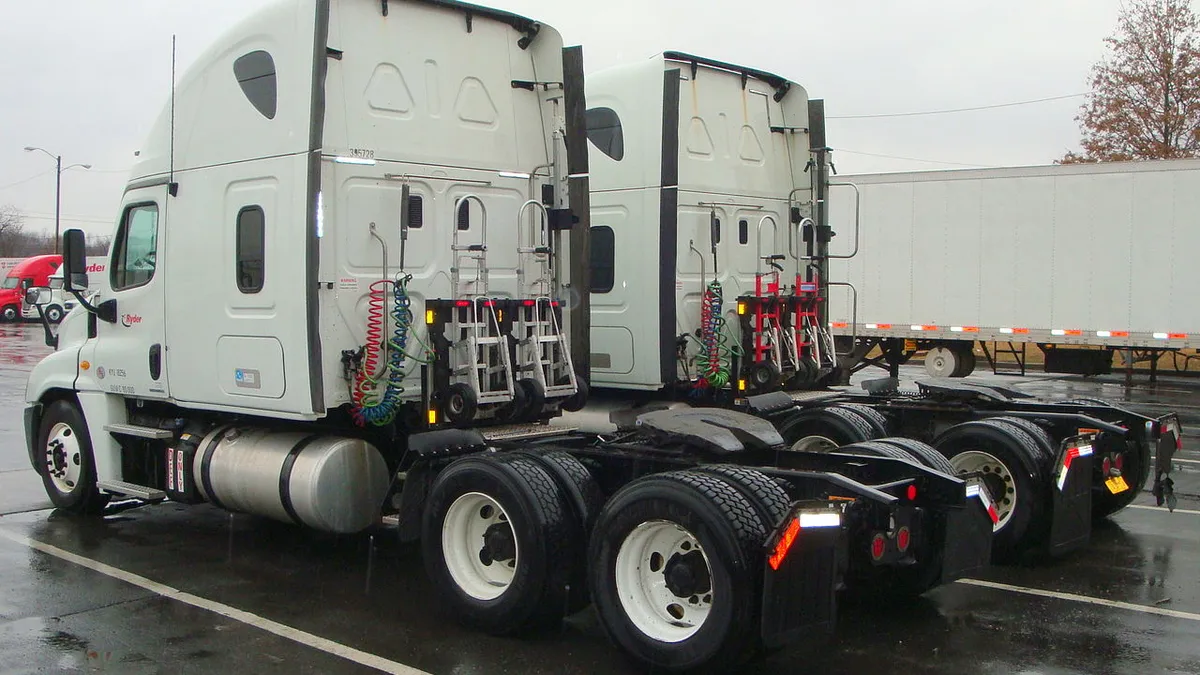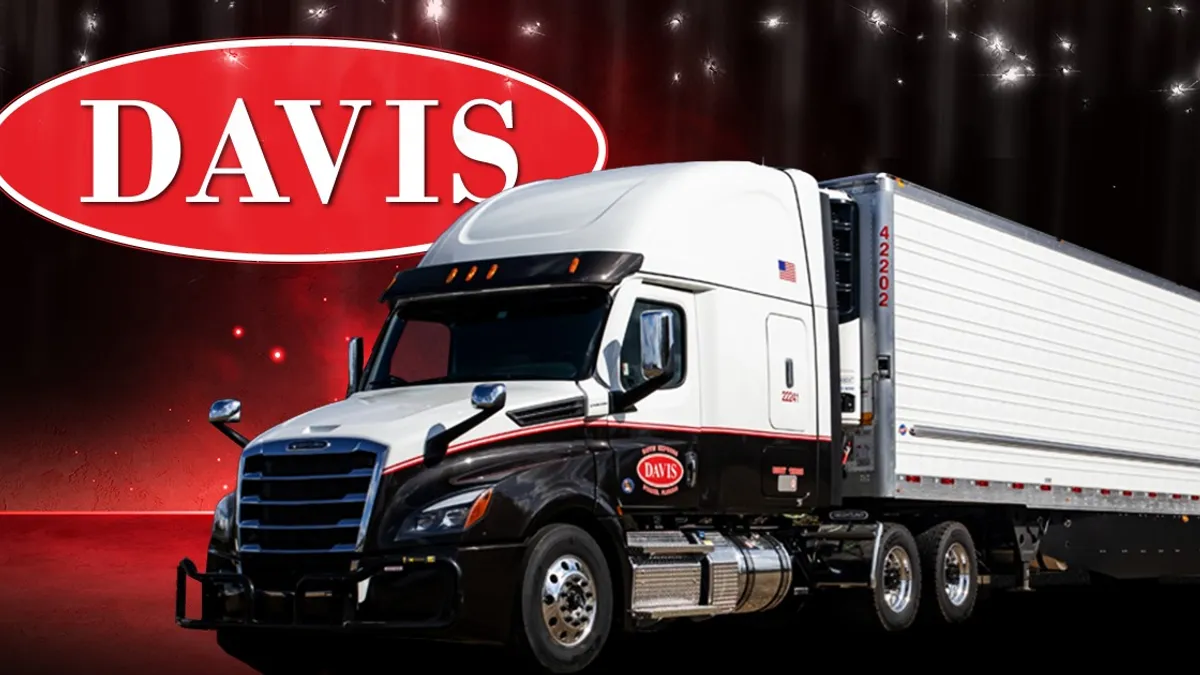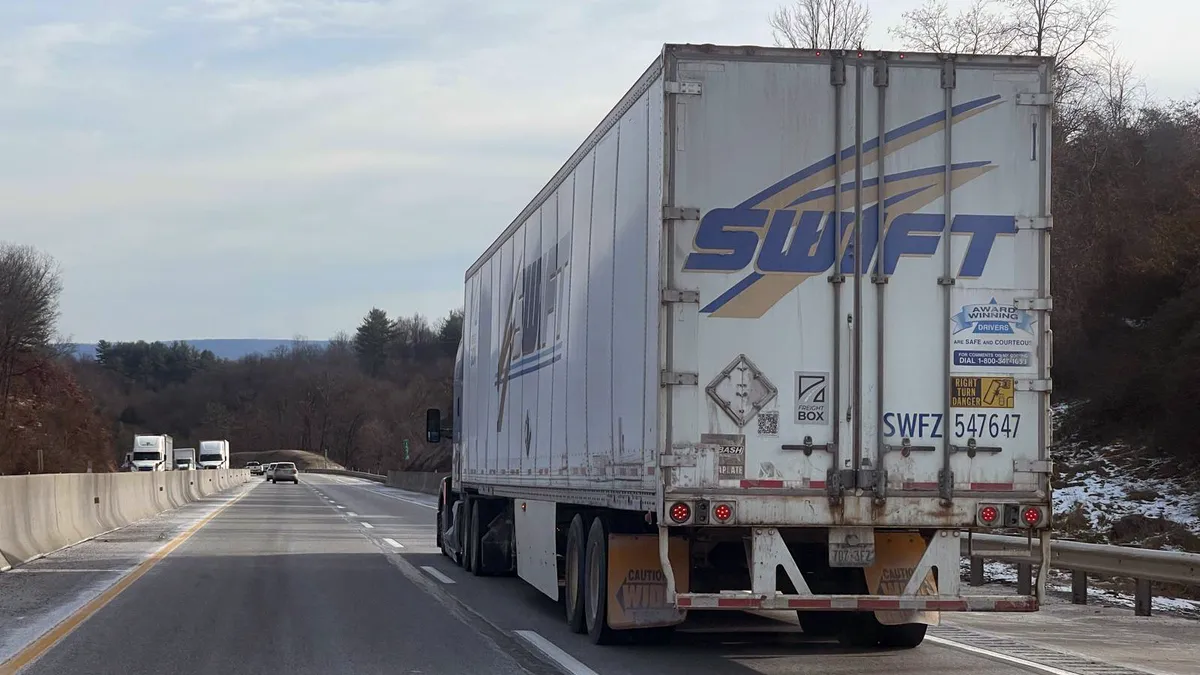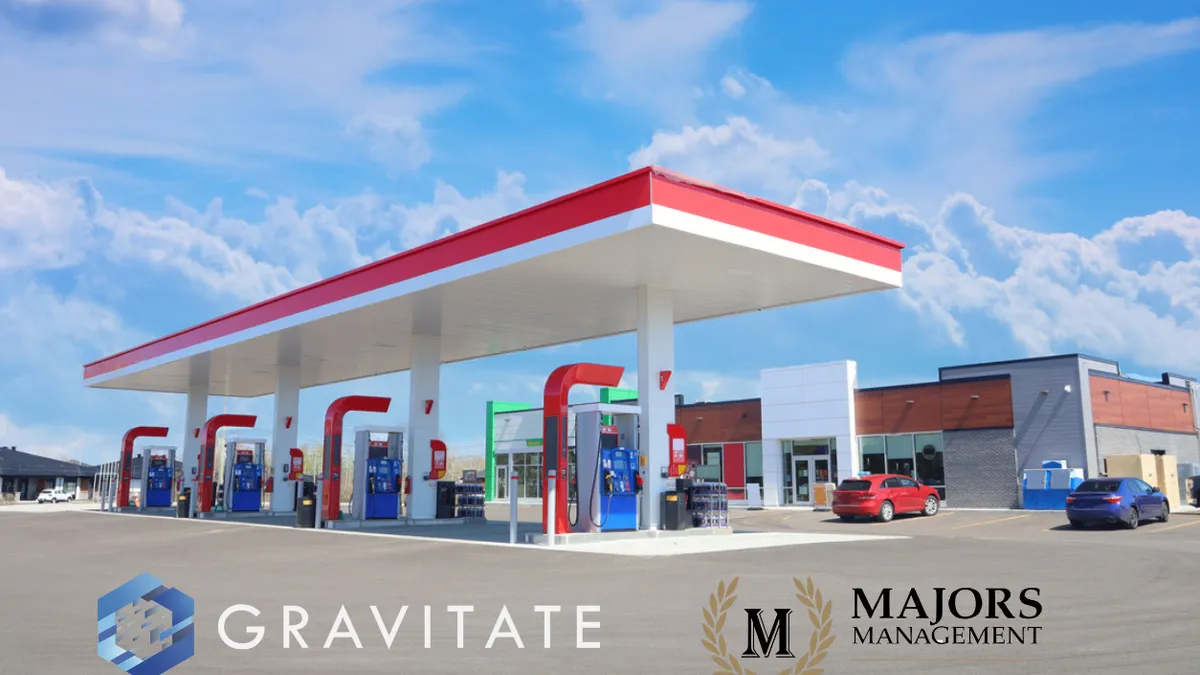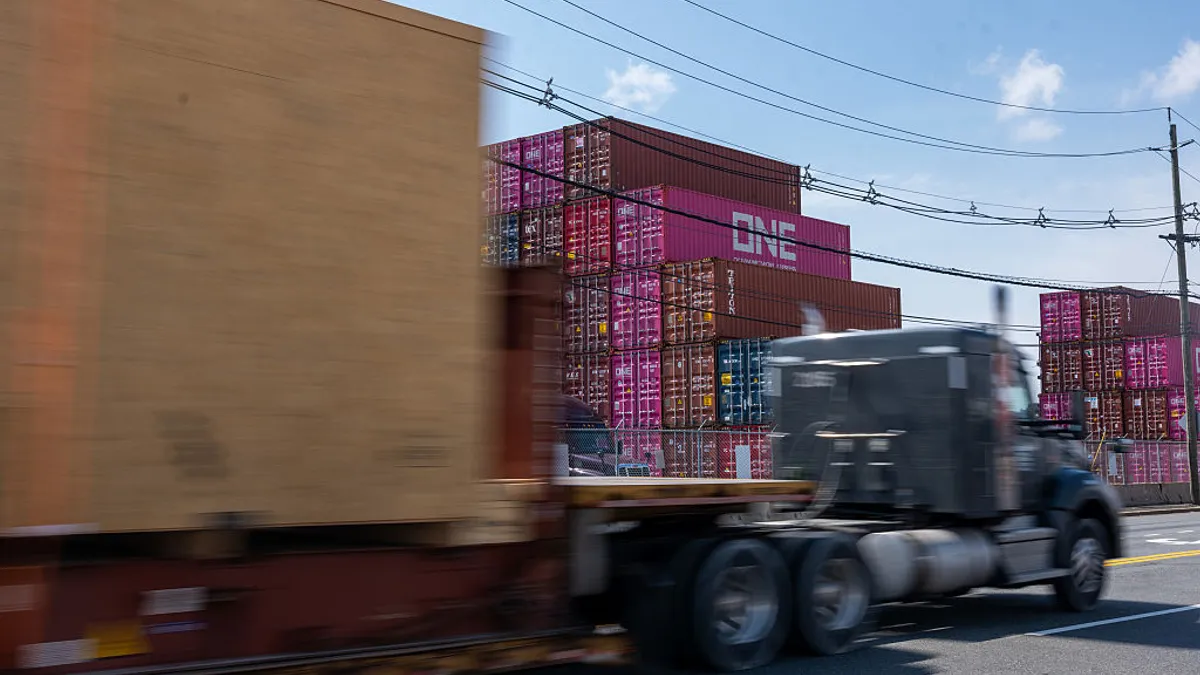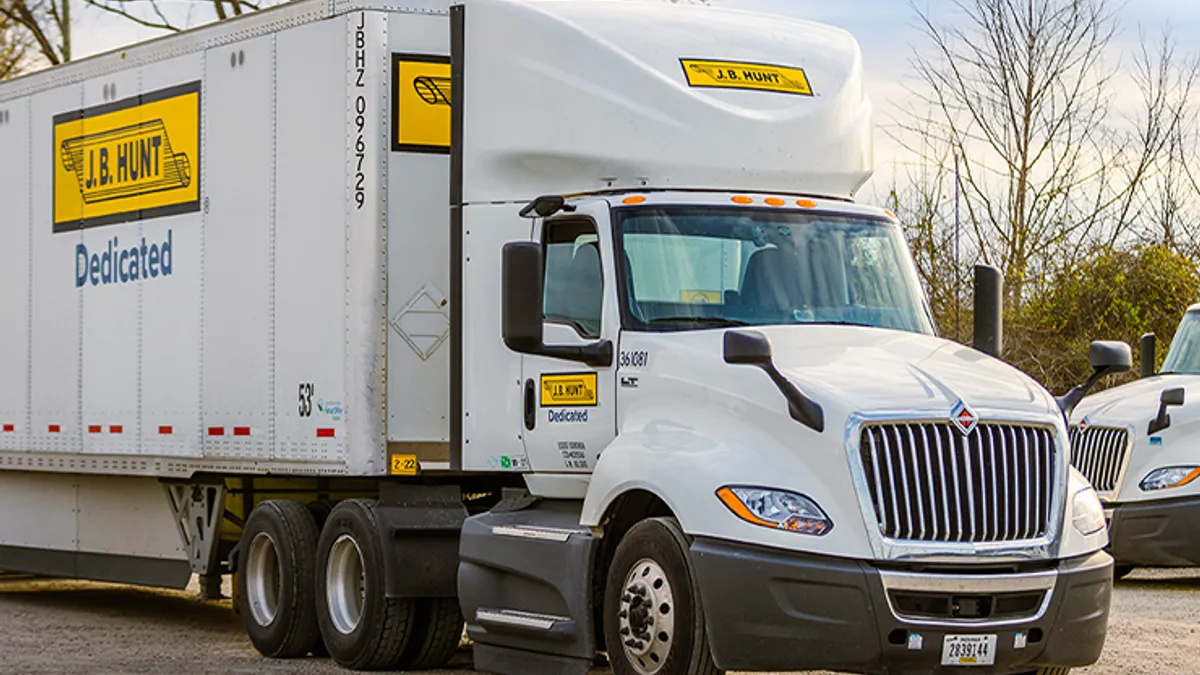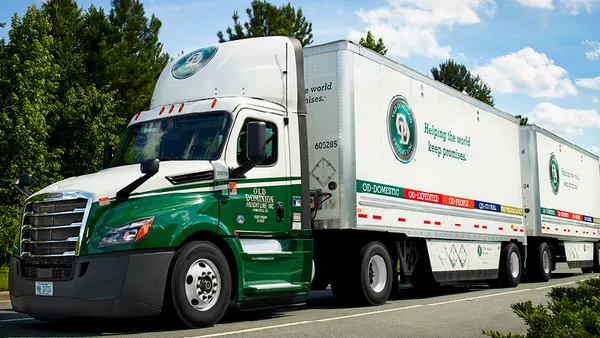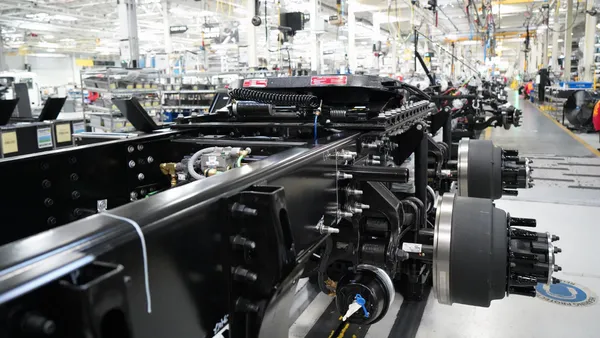The nation's demand for goods continues to surge, and trucking companies are considering expanding capacity in various ways.
Yellow, formerly YRC, is undertaking an equipment overhaul with plans to buy 2,400 tractors this year.
Others are keying into the power-only trend by adding trailer capacity to support tractor-focused firms. J.B. Hunt , for instance, plans to add 3,000 trailers to its highway services business this year. That segment houses its 360box program, a trailer pool and drop-and-hook service for third parties, which don't need to own trailers.
Power-only and tractor-trailer approaches to equipment have their merits in this unprecedented demand economy. But for some carriers, power only is the smart move.
Less investment, more flexibility
"A power-only strategy can, in some cases, provide a stronger ROI, simply because the investment is lower," said Zach Gilbert, vice president of flex solutions at Coyote Logistics. "The expectation from a shipper would likely be a lower line-haul cost and more flexibility on end destination, in exchange for the use of the carrier's equipment."
Additionally, it's less common for a customer to leverage a carrier for their trailers only, compared to trucks only, said Shawn McCloud, vice president of UPS operations at Coyote.
"If we have a seasonal provider that might have additional capacity during certain times in the year, we are able to introduce them to a ‘vanilla fleet' type model," he explained. "This essentially allows flexibility at the customer, shipper and carrier level."
In that scenario, carriers use their extra power to haul preloaded shipments in leased equipment, he said. That means they're not responsible for balancing assets, which, in turn, means the shipper doesn't have to be concerned with repositioning assets during loading and unloading.
"A power-only strategy can, in some cases, provide a stronger ROI, simply because the investment is lower."

Zach Gilbert
Vice President of Flex Solutions at Coyote Logistics
"The leased equipment can allow providers like Coyote to be more flexible with the ebbs and flows of shipper demand," McCloud said.
Statistics show that the power-only category has grown substantially throughout the pandemic. According to Brent Hutto, chief relationship officer at Truckstop.com, power only was at a low in the years following deregulation.
"Over the past year, it has climbed out to a historic 41-year high," he said. "It's incredibly challenging to move goods right now with so much demand, so it's no surprise that there's high demand for power only."
Looking at the math, trucking companies can capitalize on demand right now and charge better rates for power only.
"It's not white-glove service, but you're somewhere in between that and standard services," said Steve Tam, vice president at ACT Research. "You've got a lower capital investment on the front end and lower maintenance costs, plus you can charge more than normal, so it is a good way to generate revenue right now."
Stephanie Sabatini, COO at RLSA Trucking & Logistics, said that after providing close to 30 years of power-only services, demand is higher than ever right now.
"For customers, it's a good option for their timeline because it offers flexibility," she said. "It keeps the trucks moving and the equipment turning faster than having to wait for different carriers."
Power only offers a cost-effective way to keep up with demand, and it also helps mitigate some impacts of the driver shortage.
"With the pandemic, many drivers haven't wanted to wait at [distribution centers] and are often staying confined to their trucks," said Sabatini. "Power only means they can just drop and hook, which eliminates those concerns."
Power-only carriers can capitalize on elevated demand
Steve Rumble, manager of the power only division at Bennett DriveAway, said the lack of drivers has meant a substantial increase in the company's power-only demand.
"For shippers, it's easier to work with a company like ours to shuttle trailers from one end of the country to the other," he said. "Then they aren't tying up their own drivers."
Hutto added that many shippers will have their own trailer pools, but they lack drivers and trucks to haul them.
"One in four loads are rejected in the marketplace right now," he said, "so power only makes sense when you can't work with a contracted carrier."
Mind the details
One issue that must be sorted out ahead of time is who is responsible for the care, maintenance and insurance of the trailer. In general, that will fall to the shipper.
"In some cases, the carrier will buy gap insurance to cover the haul," said Hutto. "It all comes down to the most affordable way to go."
Rumble said for companies considering getting into the power-only game, it's important to do the homework first and remain vigilant with customers.
"If you're not offering power only, now is the time."

Brent Hutto
Chief Relationship Officer at Truckstop.com
"Constantly follow up with the pick-up and delivery locations, because those can change and you might not learn of it until it's too late," he said.
With the right dose of diligence, however, there's a good business case for power only.
"If you're not offering power only, now is the time," said Hutto. "Marketplace rates are high, and a shipper will always default to getting goods to market over paying a lower rate."


